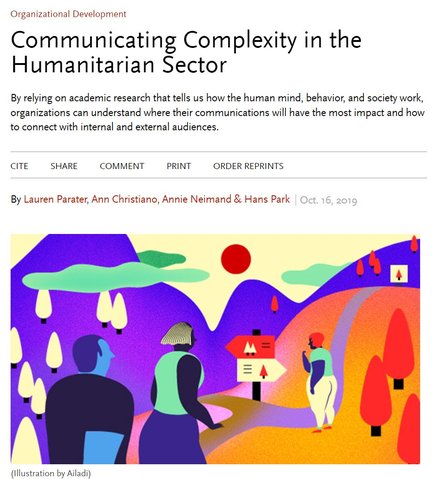
Change is rarely straightforward. Those of us working in the social sector understand this, because we often work on complex and abstract issues like climate change, criminal justice, and migration. The problem of effectively communicating in the face of abstraction is no stranger to people working on innovation, and it presents a huge barrier to getting buy-in and support for new ideas. Many people associate innovation with gadgets, data science, and famous inventors like Steve Jobs, rather than viewing it as a tool that can build new ways of thinking. Indeed, the term is overused and, in many cases, meaningless.
Meanwhile, nonprofits and NGOs tend to communicate their own organizations’ values, rather than connect to the values of the audiences they want to engage. This, paired with abstract language, leaves audiences to fill in the blanks with their own assumptions and biases about what innovation is.